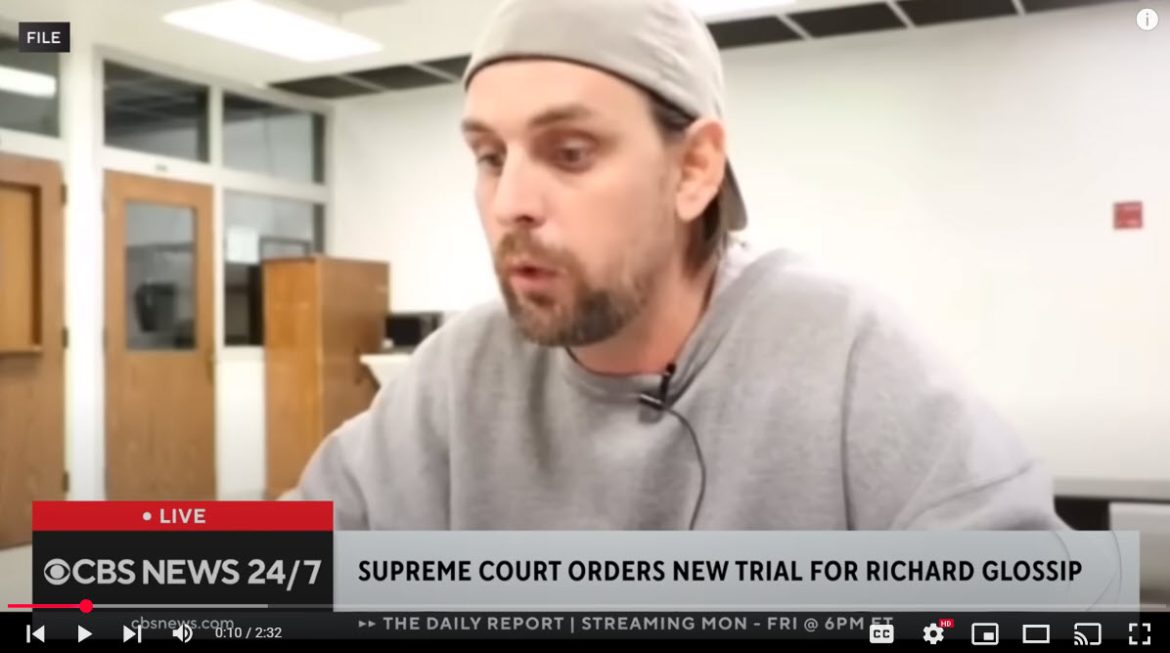In a landmark decision on February 25, 2025, the U.S. Supreme Court overturned the conviction of Richard Glossip, an Oklahoma death row inmate, and ordered a new trial. Glossip had been found guilty of orchestrating the 1997 murder of Barry Van Treese, the owner of the Best Budget Inn in Oklahoma City, where Glossip served as the manager. The Court’s 5-3 ruling cited significant prosecutorial misconduct, including the withholding of critical information about the key witness, Justin Sneed.
The case against Glossip primarily relied on the testimony of Justin Sneed, the motel’s maintenance worker, who confessed to fatally beating Van Treese with a baseball bat. In exchange for a life sentence, Sneed testified that Glossip had solicited him to commit the murder. However, new evidence has emerged indicating that prosecutors failed to disclose Sneed’s psychiatric evaluations and did not correct his false testimony regarding his mental health history. This information could have undermined Sneed’s credibility and influenced the jury’s decision.
Justice Sonia Sotomayor, writing for the majority, emphasized that the prosecution’s failure to correct false testimony and disclose pertinent information violated Glossip’s constitutional rights. The ruling stated that such omissions could have affected the jury’s verdict, warranting a new trial. Justice Neil Gorsuch recused himself from the case due to prior involvement, while Justices Clarence Thomas and Samuel Alito dissented, arguing against the Court’s intervention.
Oklahoma County District Attorney Vicki Behenna acknowledged the Supreme Court’s decision and has initiated discussions with State Attorney General Gentner Drummond to determine the appropriate course of action. Behenna stated that her office would thoroughly review the Court’s opinion before deciding whether to retry Glossip.
Attorney General Drummond, a conservative Republican, has previously expressed concerns about the integrity of Glossip’s conviction. He described the case as a “travesty” if allowed to proceed without addressing the evident flaws and has supported calls for a new trial.
The family of Barry Van Treese maintains confidence in Glossip’s guilt. Van Treese’s son expressed belief that a new trial would reaffirm Glossip’s culpability, stating that Glossip is “clearly guilty of first-degree murder.”
This ruling underscores the Supreme Court’s commitment to ensuring fair trials, especially in capital cases where the stakes are life and death. The decision also highlights the importance of prosecutorial transparency and the obligation to disclose all evidence that could influence a jury’s determination of guilt.
As Oklahoma prosecutors deliberate on whether to pursue a new trial, Glossip’s case continues to draw national attention, sparking debates over the death penalty and the potential for wrongful convictions within the justice system.
Sources:
- Supreme Court Throws Out Richard Glossip’s Conviction
- Supreme Court Grants Richard Glossip New Trial
- Supreme Court Rules Oklahoma Can’t Execute Inmate
- Supreme Court Throws Out Murder Conviction of Richard Glossip
- Richard Glossip and the Death Penalty Case That Went Too Far
- Supreme Court Grants Richard Glossip New Trial in Capital Case
- Richard Glossip Case: Full Timeline of His 27 Years on Death Row
- Supreme Court Opinion on Glossip v. Oklahoma
- U.S. Supreme Court Rules Prosecutors Violated Ethical Responsibilities in Richard Glossip’s Case
- Victim’s Family Confident Richard Glossip Will Be Convicted After Supreme Court Orders New Trial
- U.S. Supreme Court Vacates Richard Glossip’s Conviction, Orders New Trial
- Richard Glossip
- He’s Survived Death Row Nine Times – and Put Capital Punishment on Trial
- Oklahoma Attorney General Sees ‘Travesty’ if U.S. Supreme Court Allows Glossip Execution



